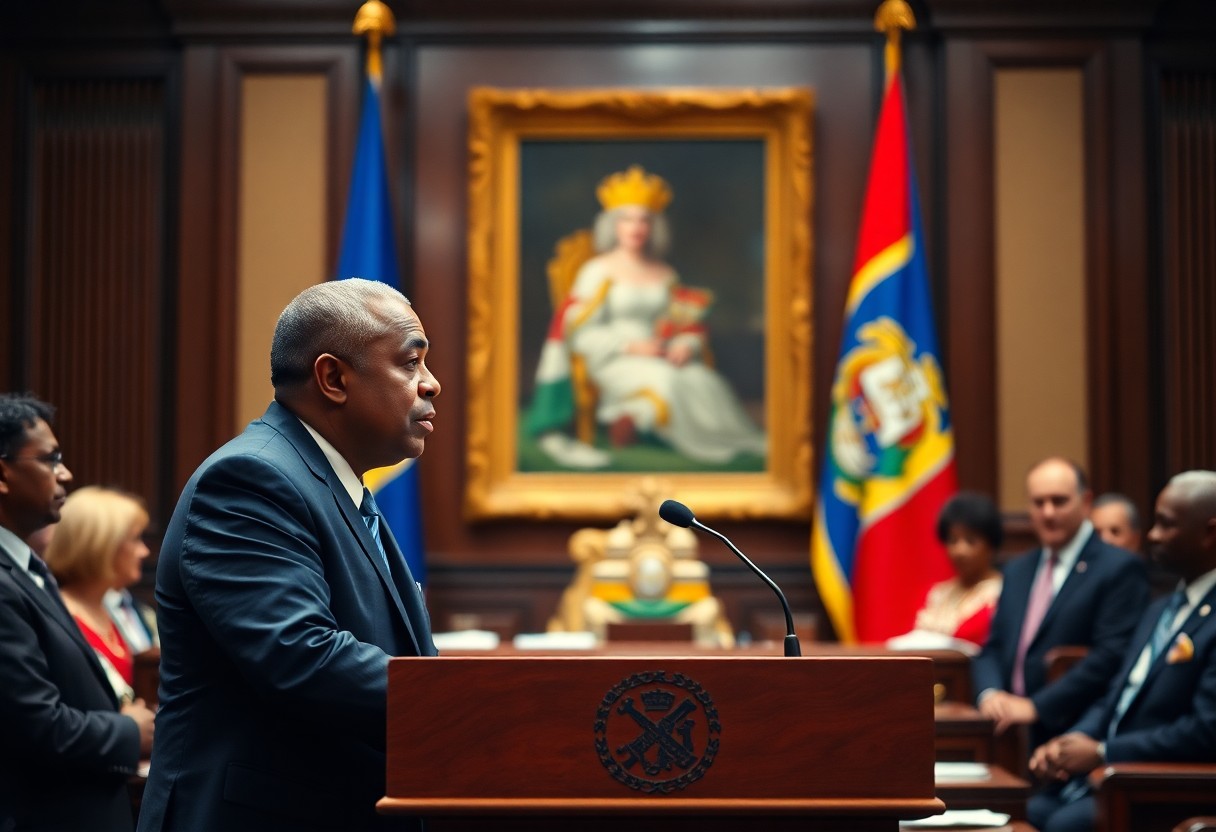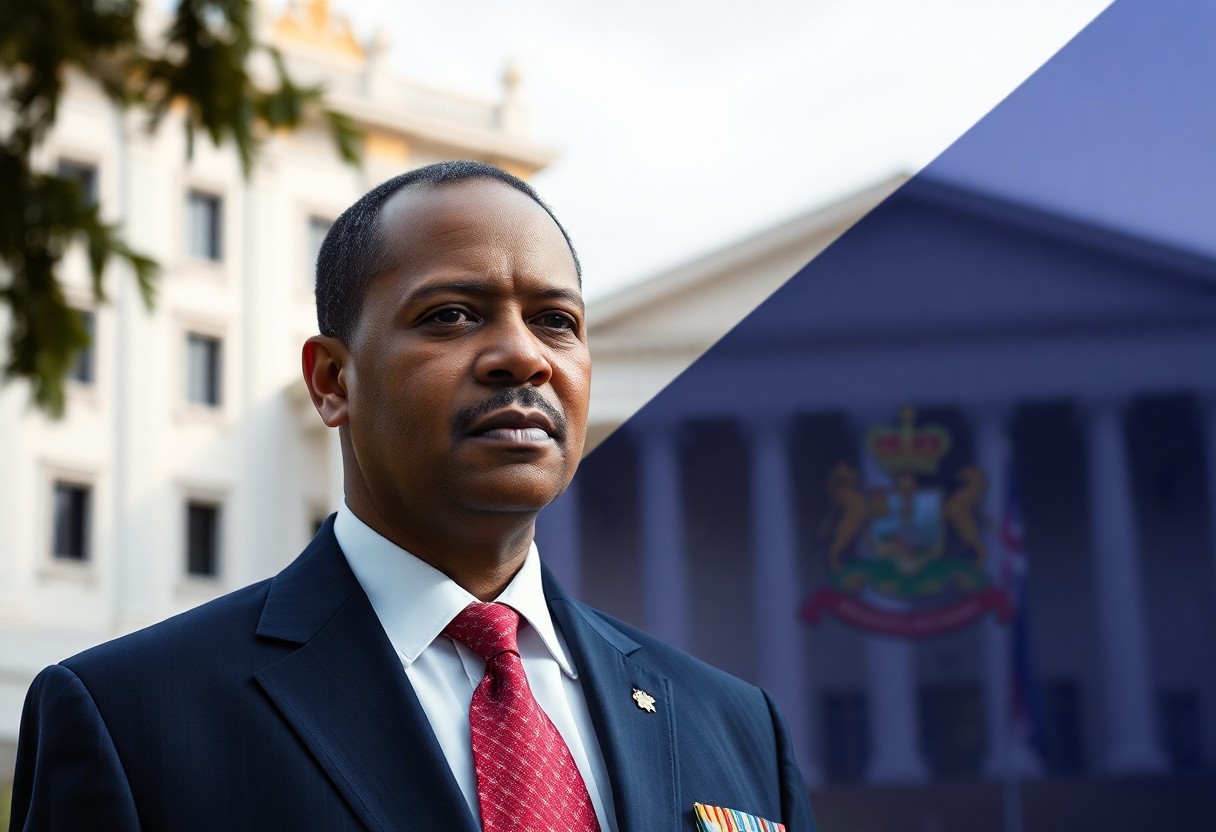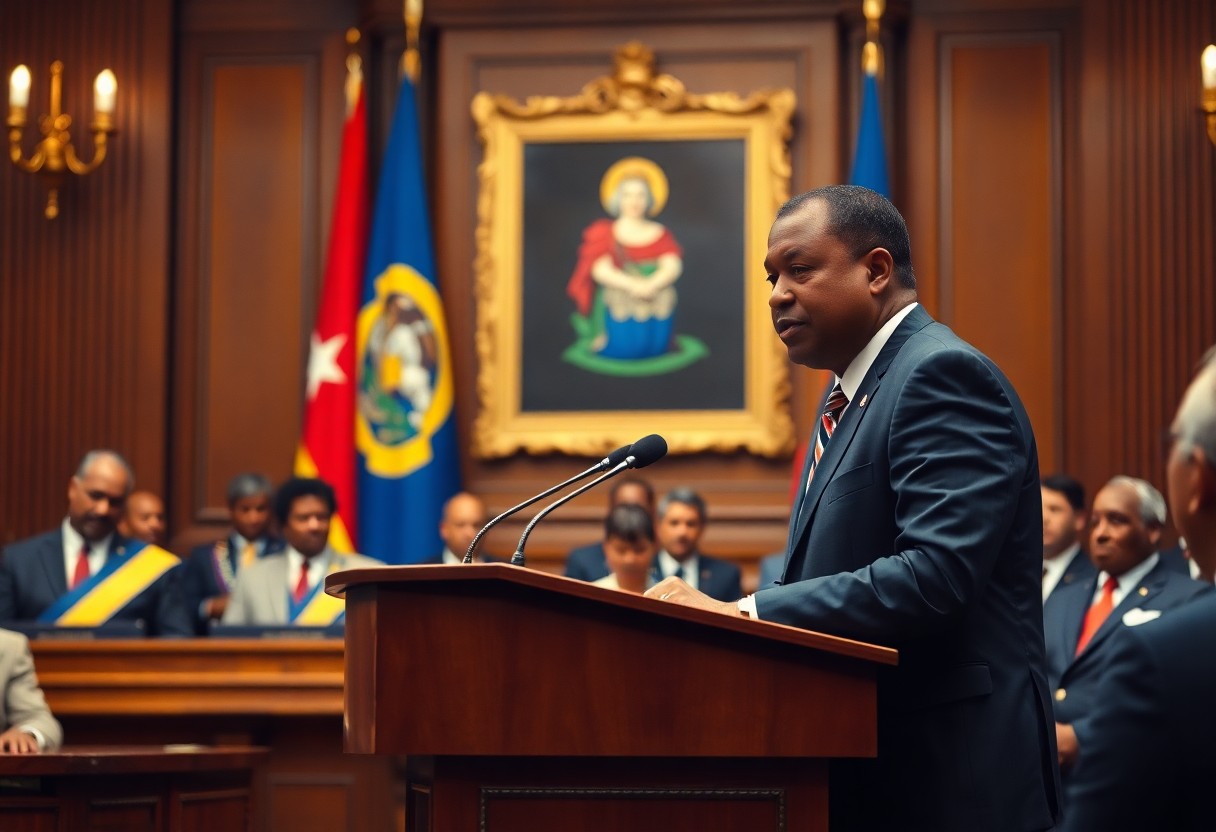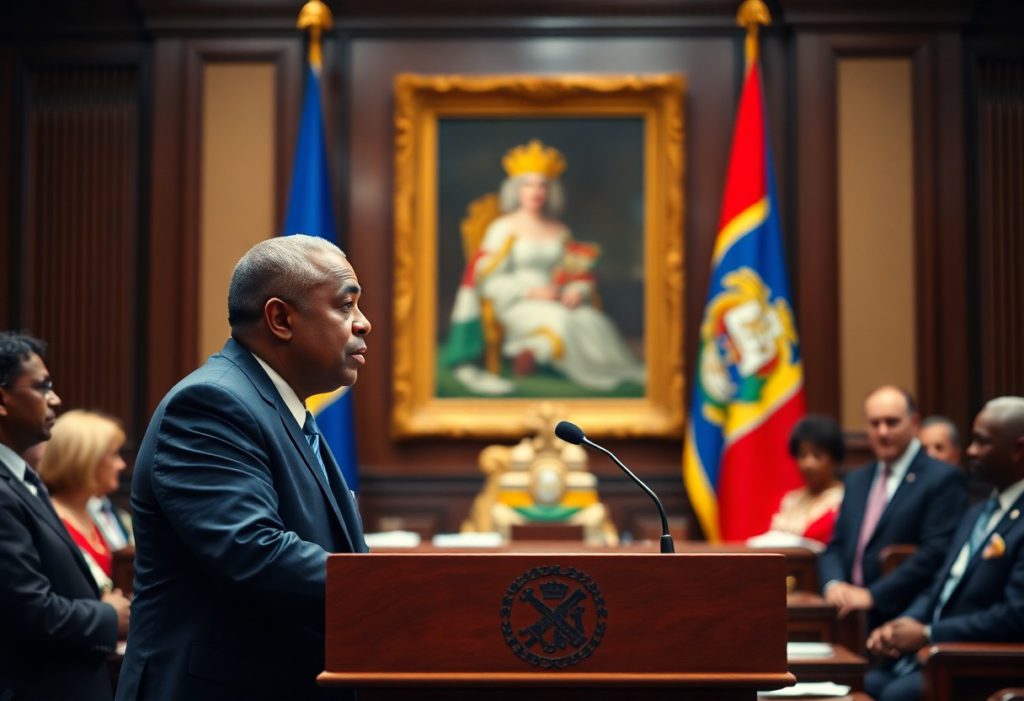Belize showcases a dynamic political landscape that captivates with its complexity and uniqueness. As a parliamentary democracy, Belize functions within a constitutional framework where the contributions of elected representatives play a vital role in the governance process. Although Belize is a Commonwealth realm with King Charles III serving as the official head of state, the real political power resides with the Prime Minister and the National Assembly. This distinctive governmental structure blends traditional British parliamentary practices with modern democratic principles, crafting a singular political environment that reflects Belize's rich historical and cultural heritage.
Grasping Belize's Constitutional Framework for Strong Governance
The constitutional framework of Belize establishes the foundation for a parliamentary democracy within the context of the Commonwealth realm. This system is thoughtfully designed to balance democratic governance principles with the historical institutional structures inherited from British colonialism. The constitution, adopted in 1981 post-independence, outlines the fundamental political organization of the nation, detailing the roles and relationships among various branches of government. This structure ensures that the governance of Belize remains both representative and accountable to its citizens, fostering trust and civic engagement.
The Monarch's Role: The Ceremonial Head of State in Belize
Under the constitutional framework, the British monarch acts as Belize's ceremonial head of state. Although King Charles III is the symbolic sovereign, he is represented in Belize by a Governor-General appointed on ministerial advice. The role of the Governor-General is largely ceremonial, encompassing formal governmental events and a variety of constitutional duties that are key to the country's governance. This relationship highlights the historical connections between Belize and the British monarchy, while simultaneously allowing local governance mechanisms to flourish and evolve.
The Prime Minister: Leading Belize's Political Landscape
In the political sphere of Belize, the Prime Minister stands as a figure of executive authority and leadership. This position is typically held by the leader of the majority party within the House of Representatives. The Prime Minister is tasked with steering national policies, overseeing government operations, and representing Belize on a global stage. Their role is crucial in determining the nation's direction and navigating the complex political landscape.
The constitution explicitly delineates the significant responsibilities that the Prime Minister carries within Belize’s governance framework. This role demands decisive action across multiple governmental sectors, emphasizing the critical nature of competent leadership. The Prime Minister leads the Cabinet, initiates legislative proposals, manages national economic policies, and serves as the principal political spokesperson for Belize. While their authority is considerable, it is balanced by parliamentary scrutiny and constitutional constraints.

Assessing the Prime Minister's Impact on Belize's Governance
The Prime Minister of Belize is not only the head of government but also exerts substantial political influence and authority. As the leader of the majority party in parliament, they play an essential role in shaping national policies, representing Belize internationally, and overseeing the executive functions of government. Their position is critical for ensuring effective governance and facilitating the national decision-making process.
Delving into the Extensive Powers of the Prime Minister
To fully appreciate Belize's political structure, it is essential to recognize that the Prime Minister wields significant constitutional powers that substantially affect the nation’s political environment. This authority includes appointing cabinet ministers, advocating for new legislation, directing government policies, and representing Belize in various international forums. The breadth of this influence solidifies the Prime Minister’s role as a central figure in Belize's governance, capable of shaping the nation's future trajectory.
Understanding the Election Process for the Prime Minister's Selection
Typically, candidates for ministerial positions arise through party-centric electoral mechanisms. Notably, potential Prime Ministers often lead their respective political parties, securing parliamentary seats in the process. Their ascent to this significant role is contingent on their party’s electoral performance, reflecting the foundational democratic principles that characterize Belize’s governmental structure.
The election process in Belize embodies complex political dynamics crucial for understanding its governance. Candidates navigate various challenges, including local constituency elections, party nominations, and national voting trends. Generally, the leader of the party that wins the most seats in parliament ascends to the Prime Ministership, illustrating the direct link between electoral success and government leadership.

Analyzing Belize's Bicameral Parliamentary Structure
Belize's governance operates under a parliamentary democratic framework, adopting a Westminster-style model derived from British colonial traditions. The bicameral legislature consists of two chambers: the House of Representatives and the Senate, which together form the primary legislative body responsible for drafting and enacting national laws.
Unpacking the Role of the House of Representatives
The House of Representatives is vital for democratic representation, comprising 31 elected members chosen through constituency-based elections. These representatives are directly elected by the citizens, serving as the primary voice of democracy within Belize's political system. Each member advocates for their specific geographic area, ensuring the diverse needs and interests of the populace are adequately represented in the legislative process.
The Senate's Structure and Responsibilities
In contrast to the House of Representatives, the Senate serves as an appointed upper chamber with 12 nominated members. These senators are not elected by the public; rather, they are appointed by the Governor-General based on recommendations from various political and social sectors. This system enriches the legislative process, incorporating diverse insights and expertise into national legislation.
This legislative body plays a critical advisory role in Belize’s governance. Senators are often selected to represent a wide array of interests, including business, labor, religious groups, and civil society. Their primary responsibility includes reviewing and potentially amending legislation passed by the House of Representatives, ensuring a comprehensive and balanced approach to lawmaking that considers various societal perspectives.

Dispelling Common Misconceptions about Belize's Political System
Despite popular beliefs, Belize's governance structure is far more intricate than many assume. Widespread misconceptions about political leadership contribute to confusion regarding the true nature of governance within the country. The reality of Belize’s political system diverges significantly from superficial perceptions, revealing intricate layers of authority and governance that warrant deeper investigation.
Clarifying the Roles of “President” and “Prime Minister” in Belize
Given that numerous countries operate under presidential systems, there is a tendency to mistakenly believe that Belize follows a similar model. However, it is crucial to understand that Belize functions within a parliamentary system, where the Prime Minister serves as the head of government rather than a president. This distinction is essential for comprehending the political leadership framework, as the Prime Minister is elected from the majority party in parliament, contrasting with a directly elected presidential figure.
Understanding the Intricacies of Belize's Political System
Exploring Belize’s political framework reveals complex interactions among constitutional monarchy, parliamentary democracy, and local governance. While the British monarch is the official head of state, daily governance is conducted by elected officials through a representative democratic model, emphasizing accountability at the local level.
Common misconceptions surrounding Belize's political structure often overlook the delicate balance of power between local institutions. It may be surprising to discover that the system encompasses multiple levels of governance, including a national parliament, local councils, and the influence of the British monarchy through the Governor-General. Gaining insights into this nuanced political landscape necessitates a deeper understanding beyond simplistic categorizations of governmental forms.
Understanding Governance Dynamics and Political Relationships in Belize
Recognizing that Belize operates as a parliamentary democracy within a constitutional monarchy is essential, with the British monarch acting as the ceremonial head of state. Your comprehension of the political landscape is significantly shaped by the Prime Minister's substantial authority, who leads the government and represents the majority party in the National Assembly. Although the political system appears stable, potential tensions between political factions can introduce intricate governance challenges, influencing national decision-making processes. Awareness of these dynamics will enrich your understanding of the delicate balance of power in this Central American nation, where historical influences and democratic practices continually shape its political evolution.
Tracing the Historical Journey of Belize's Political Landscape
The political landscape of Belize has evolved from a rich and intricate colonial history, where British colonial administration profoundly impacted its governance structures. Exploring the nation’s political evolution reveals a transition from being a British Honduras colony to gaining independence in 1981. This transformative period represents a critical point in your understanding of Belize's governance framework. As you delve deeper, you will discover how British parliamentary traditions have fundamentally influenced Belize’s contemporary political system, creating a unique fusion of Westminster-style democracy and local governance that continues to define the nation's political identity today.
Essential Insights on Belize's Political Structure and Governance
To summarize, Belize operates as a parliamentary democracy within the Commonwealth realm, where the Prime Minister holds significant executive power. Although Queen Elizabeth II historically served as the head of state, the current monarch, King Charles III, maintains a largely ceremonial role. Understanding Belize’s governance revolves around the National Assembly, which consists of elected representatives responsible for drafting and enacting legislation. The Prime Minister, typically the leader of the majority party, effectively governs the country, making pivotal decisions that shape Belize’s political landscape. This system successfully balances democratic representation with the principles of constitutional monarchy, ensuring a stable yet dynamic governance model.
Frequently Asked Questions Regarding Belize's Political System
What Are the Core Functions of Belize's Political System?
Belize operates as a parliamentary democracy within the Commonwealth realm. The Prime Minister serves as the head of government, leading the executive branch. The Parliament comprises two chambers: the House of Representatives (made up of elected members) and the Senate (comprising appointed members). While Queen Elizabeth II historically held the ceremonial head of state position, King Charles III currently fulfills this role, represented locally by a Governor-General.
Who Currently Leads Belize, and How Are National Leaders Selected?
Prime Minister Johnny Briceño heads Belize, representing the People’s United Party (PUP). National leaders are chosen through democratic elections, wherein citizens cast votes for representatives in the House of Representatives. The political party that wins the majority of seats typically forms the government, with its leader becoming the Prime Minister. Elections occur every five years, ensuring ongoing democratic participation.
What Legislative Powers Does the Belizean Parliament Hold?
The Belizean Parliament possesses considerable legislative authority. The House of Representatives drafts, debates, and enacts laws that influence national policy. Members propose legislation, approve national budgets, and oversee government operations. The Senate reviews proposed laws and can suggest amendments. Both chambers play crucial roles in upholding democratic procedures and representing the interests of Belizean citizens.
The Article Who Really Runs Belize? The Prime Minister, Parliament, and Monarchy Explained appeared first on Belize Travel Guide
The Article Who Runs Belize? Insights on the Prime Minister and Government Was Found On https://limitsofstrategy.com


